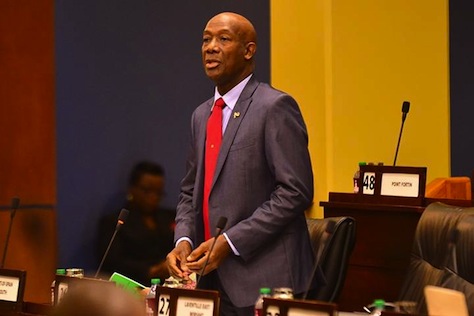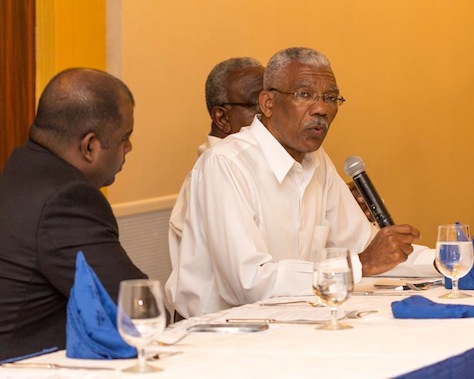What does Trinidad and Tobago have in common with Alberta?
![]()
In elections in both places, voters are punishing governments for tanking oil prices, a global trend that Alberta’s 44-year-long Tory government was no less powerless to halt than prime minister Kamla Persad-Bissessar, the first female leader of the Caribbean nation of Trinidad and Tobago. Her party, the United National Congress (UNC), lost its bid for reelection after parliamentary elections on the dual-island state on September 7.
Instead, the People’s National Movement (PNM), the party that has controlled government in the Caribbean nation for all but 16 years since its independence from the United Kingdom in 1962, will return to power. The country’s new prime minister, Keith Rowley (pictured above), is a 65-year-old geologist who served in the House of Representatives in 1991 and has held several ministerial portfolios, including agriculture, housing, and trade and industry. Though Manley comes from the same generation as Patrick Manning, who served as prime minister from 1991 to 1995 and, for the second time, from 2001 to 2010, Manning fired Rowley from the cabinet in 2008 for ‘hooligan behaviour.’
Like many countries in the Caribbean, the years since the global financial crisis of 2008-09 have been met with sluggish economic growth, rising unemployment in the face of already-high joblessness and rising public debt levels. Since 2010, Trinidadian debt has nearly doubled from around 26% to just over 50%. Nearly one-third of its exports come from natural gas and, together with petroleum, energy accounts for 60% of the country’s exports. So falling prices for both commodities are already taxing what had been tepid growth during Persad-Bissessar’s term in office. Rowley inherits the thankless task of cutting the country’s budget in the two months ahead at a time when oil prices show now signs of improvement.
Combined with the Alberta precedent, Trinidad’s election matters as another data piece suggesting that incumbents in states with energy-dependent economies are in trouble — a foreboding thought for Canada’s prime minister Stephen Harper and for ruling classes in Turkey, Azerbaijan and Venezuela who face elections later in 2015. Continue reading Long-ruling PNM returns to power in Trinidad and Tobago

